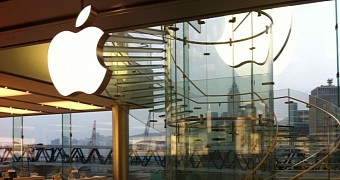Apple wants to expand its business in India by any means, and after the company’s plan to sell refurbished iPhones in the country was rejected, it’s now trying a different strategy to benefit from the local growing demand for new smartphones.
A report by TOI reveals that Apple might be allowed to open its own stores in India, which would obviously lead to bigger iPhone sales in the country. This is despite the fact that the company wasn’t initially given an exception from Indian legislation that requires firms to source at least 30 percent of parts used on their products from local manufacturers.
With Apple getting most of their parts from Chinese companies, Cupertino asked for an exemption, but the Indian government rejected the proposal and required Cupertino to comply with the regulations.
A sudden change of heart
And yet, it turns out that Indian authorities might be having a change of heart, and CEO Tim Cook’s visit to India last month was pretty successful, as Apple might be allowed to open stores in the country with a catch.
The company is reportedly allowed to open retail stores in India without complying with the aforementioned regulations, but the exemption would only be valid for the first two to three years. This means that, after this timeframe expires, Apple needs to start buying parts for its devices from local manufacturers, so the company would be given more time to comply.
It appears that Apple has already taken the first steps to get in line with these requirements, so it has signed deals to purchase chargers from Indian manufacturers. Part of these chargers are also exported, the report reveals.
At this point, Apple can’t benefit from the increasing appetite of local buyers for iPhones, and the company owns just 2 percent of the Indian mobile business, all thanks to sales through third-party resellers. Apple thus hopes that, by opening official stores in the country but also by bringing refurbished phones, which would obviously be significantly cheaper, it can increase its local share.

 14 DAY TRIAL //
14 DAY TRIAL //